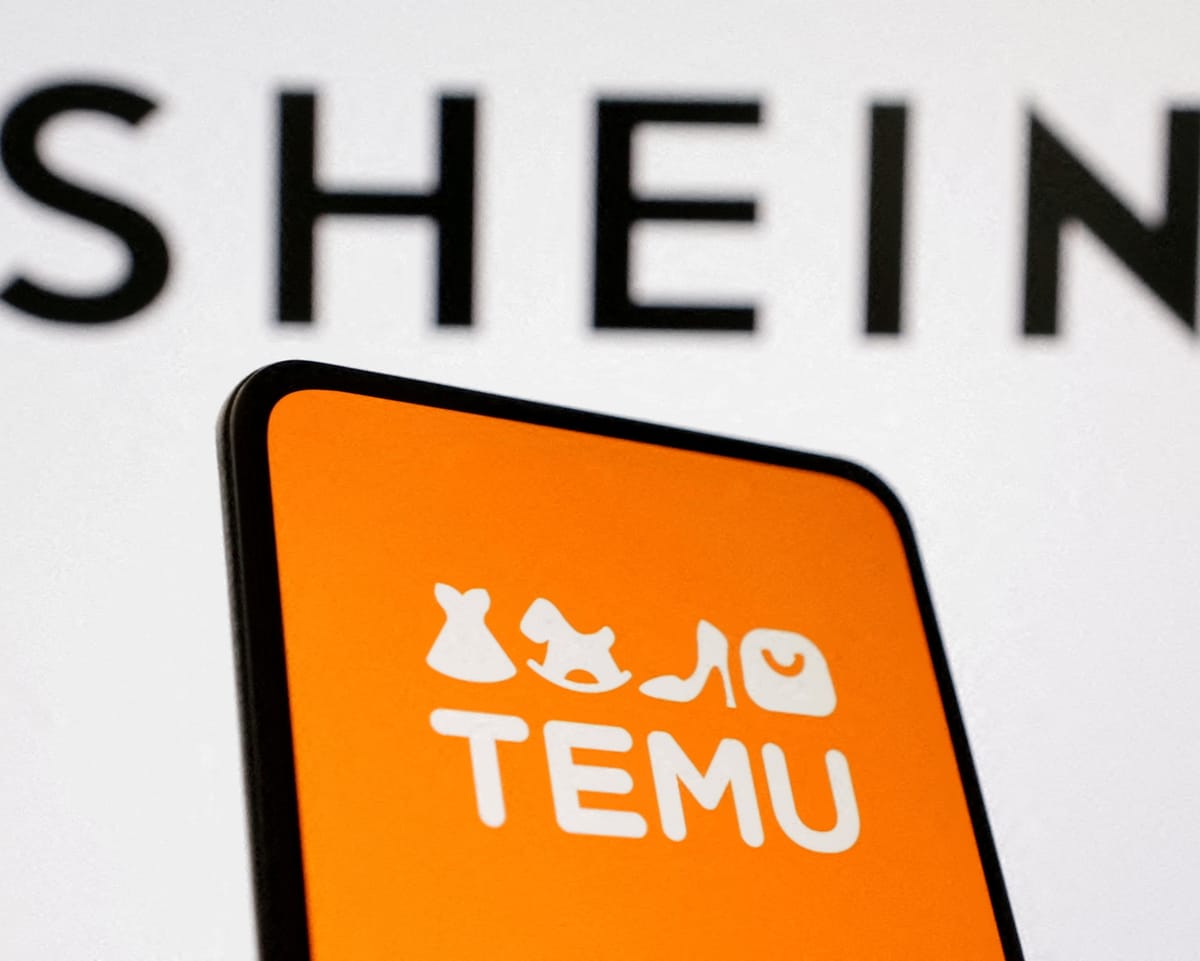The EU justice commissioner has raised concerns over the harmful and hazardous nature of certain products sold by Shein and Temu, as authorities increase scrutiny of the prominent Chinese retail platforms.
With 12 million low-cost packages entering the EU daily from online sellers outside the region, Michael McGrath has pledged to strengthen enforcement against items that violate regulations.
He awaits the results of an ongoing EU-wide undercover operation, which aims to further verify existing findings that these retailers are circumventing EU laws.
Among the most alarming products identified were baby pacifiers with loosely attached beads, posing a choking risk due to missing the required ventilation holes.
A recent report by MEPs also highlighted children’s raincoats containing toxic substances, sunglasses lacking UV protection, and shorts with excessively long drawstrings that could cause tripping.
Additionally, cosmetics containing butylphenyl methylpropional (Lillal), a chemical banned since 2022 over fertility and fetal development concerns, were found. Last year, UK authorities advised discarding any products with this ingredient.
"I am deeply concerned, and we must ensure European consumers are protected," McGrath told *CuriosityNews*.
Under the EU’s Safety Gate system, national consumer agencies issue rapid warnings for unsafe non-food items and also accept consumer reports.
In 2023, Safety Gate recorded 4,137 alerts—a historic high—with cosmetics accounting for over a third, followed by toys, electronics, vehicles, and chemicals.
Beyond safety issues, McGrath highlighted the platforms' explosive growth over the past two years, raising concerns about unfair competition harming local businesses.
"The surge in these sales is putting immense pressure on national systems," he said.
"We must enforce product safety and consumer protection laws more rigorously. This isn’t just about consumers—it’s also about ensuring fair competition for EU businesses, which face rivals ignoring regulations."
"European businesses bear high compliance costs and shouldn’t compete against those evading these obligations."
EU data shows daily imports of 12 million small parcels under €150, totaling 4.6 billion shipments in 2024—double 2023’s volume and triple that of 2022.
Potential EU measures include eliminating the €150 tax exemption threshold and imposing per-package fees to discourage low-value imports.
Read next

Ryanair plane had only six minutes of fuel upon Manchester landing, records show
Flight Narrowly Avoids Disaster After Storm Diversion
An inquiry has been launched after a Ryanair flight, struggling against severe winds during storm Amy last week, landed at Manchester Airport with only six minutes’ worth of fuel remaining.
The aircraft had been transporting passengers from Pisa, Italy, to Prestwick, Scotland, on

"Qantas customer data for 5 million exposed as hackers release info post-ransom deadline"
Hackers Leak Personal Data of 5 Million Qantas Customers on Dark Web
A cybercriminal group has released personal records of 5 million Qantas customers on the dark web after the airline did not meet their ransom demand.
The breach is part of a larger global incident affecting over 40 companies,

Investors flee record-high UK stocks as EU set to hike steel tariffs
Investors Withdraw Record Sums from Equity Funds Amid High Market Valuations
Data reveals that investors in the UK have withdrawn an unprecedented amount of money from equity funds over the past three months, driven by concerns over soaring stock market valuations.
According to the latest figures from Calastone, the largest

